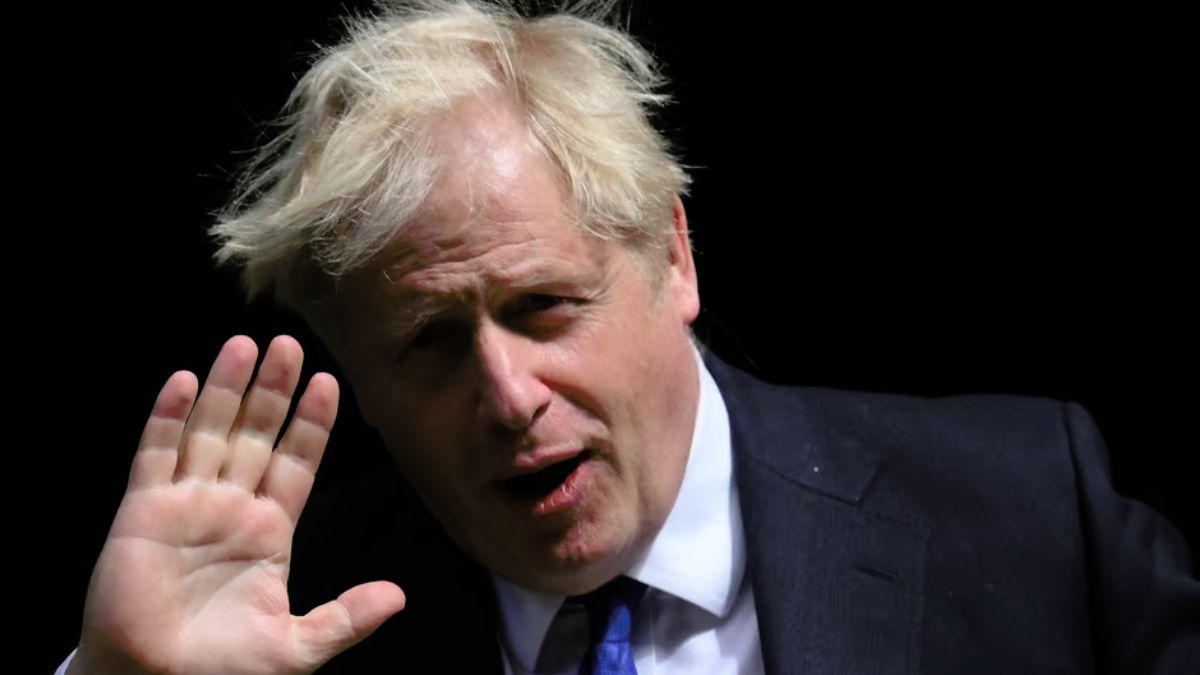The resignation of Prime Minister Boris Johnson yesterday threw the political landscape of the United Kingdom into disarray. As a result of this shocking development, many people in the United Kingdom are wondering what will happen to British politics in the future. Johnson’s departure ends a controversial and divisive presidency marked by policy clashes and disagreements within his own party. It is critical to evaluate the effects of his choice on Brexit, the UK’s international status, and the search for a new leader as the country deals with its fallout.
The Announcement that Shook the Nation
Boris Johnson shocked the nation by announcing his resignation in front of reporters at No. 10 Downing Street. The nation waited breathlessly as he presented his reasons for making the decision, which included his desire to put his family’s needs first. Politicians and regular folks alike reacted to the news with shock and alarm. The UK has tremendous issues in the post-Brexit future, including the recovery from the epidemic, economic stability, and international relations, all of which are exacerbated by Johnson’s departure.
A Tumultuous Tenure
There were many crises and difficulties during Boris Johnson’s time as prime minister. Throughout his time in office, Johnson was the target of criticism and scrutiny for everything from his management of the acrimonious Brexit discussions to his response to the COVID-19 outbreak. His unpredictable and frequently divisive leadership style was marked by colorful speech. His term was marked by internal party disagreements and high-profile resignations, despite his huge victory in the 2019 general election. Johnson’s departure prompts speculation about his legacy and the future assessment of his presidency.
The Fallout and Speculations
There has been much conjecture and ambiguity since Boris Johnson’s resignation. Pundits and analysts are debating who could succeed the current leader, and Rishi Sunak and Liz Truss’s names have emerged as frontrunners. The Conservative Party must select a new leader who can steady the ship, unify the troops, and take on the nation’s most pressing problems. Concerns have been voiced about how the resignation will affect the UK’s status in international affairs and its current discussions with the European Union, both of which will require new leadership to step in and show their authority quickly.
Reflections on Johnson’s Leadership
People are taking time to consider Boris Johnson’s tenure as prime minister and the legacy he leaves behind. His backers applaud his charm, optimism, and dedication to Brexit, while his detractors highlight his inattention to detail, broken promises, and polarizing style of leadership. There will be heated debate over Johnson’s legacy, including how he handled the epidemic, made provocative statements, and how Brexit affected the UK economy and foreign relations. Undoubtedly, history will provide a thorough assessment of his presidency.
The Search for a New Leader
Finding a new leader to steer the country through these difficult times is a tough undertaking for the Conservative Party. The process of finding Johnson’s replacement will be crucial, as it will determine the course of British politics going forward. The chosen leader will need to be skilled at reconciling differences within the party, keeping the troops together, and tackling the most important problems facing the country. Brexit, economic recovery, and public health are all issues that will put candidates’ vision and ability to the test during the upcoming leadership race. There is a lot at risk, and the party’s decision will have far-reaching effects for the country.
Implications for Brexit and the UK
The timing of Boris Johnson’s resignation is extremely important for Brexit and the future of the UK’s relationship with the EU. The Prime Minister’s resignation complicates already difficult negotiations, as key topics have not yet been settled. The next leader will be responsible for determining the course of future relations between the country and the EU, as well as for negotiating and maintaining economic agreements and diplomatic connections. Concerns have been raised regarding the potential effects of the resignation on the negotiating schedule, tactics, and outcomes. Brexit and the UK’s standing in the international community are in jeopardy.
The Future of British Politics
The Boris Johnson resignation is a historic moment that will irrevocably alter the course of British politics in the years to come. Brexit, the pandemic, and the political turmoil they ushered in are now history. The new president will have his or her hands full trying to heal a polarized country, level the economic playing field, and restore faith in government. With Johnson out of the picture, the opposition parties may be able to rethink their approach and pursue electoral victories. The decisions made in the following months will determine the course of the United Kingdom for many years to come.
FAQs
Why did Boris Johnson resign?
Boris Johnson cited personal reasons and a desire to prioritize his family’s well-being as the primary reasons for his resignation.
Who are the potential successors to Boris Johnson?
Rishi Sunak and Liz Truss have emerged as frontrunners in the race to succeed Boris Johnson as the leader of the Conservative Party and Prime Minister of the United Kingdom.
What are the implications of Johnson’s resignation for Brexit negotiations?
Johnson’s resignation adds further complexity to the ongoing Brexit negotiations. The new leader will inherit the task of steering the future relationship with the EU and negotiating trade deals.
How will Johnson’s resignation impact the UK’s international standing?
The resignation raises questions about the UK’s international standing. The new leader will need to assert their authority swiftly to maintain diplomatic ties and navigate the country’s role on the global stage.
What challenges does the new leader face?
The new leader will face significant challenges, including addressing the COVID-19 pandemic recovery, economic stability, and internal party divisions. They will also need to rebuild trust in the political establishment and unite a divided nation.











